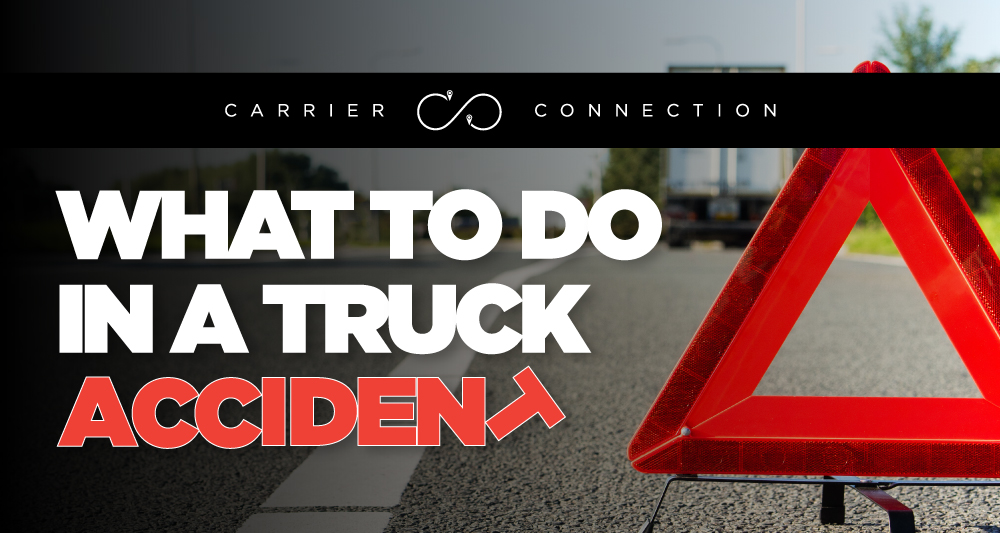![]()
Accidents of any variety can be traumatizing, terrifying, and life-changing. With most semi-trucks clocking at 35,000 pounds with an empty trailer, knowing what to do in a truck accident can be overwhelming.
As a trucker, you go to enormous lengths to keep yourself and others safe, but accidents happen in an imperfect world.
If you find yourself in an accident, the panic and questions immediately following the event can mount quickly. To help you be prepared in the event of a truck accident, we’ve compiled a procedural guide to help you know what to do.
What to Do Immediately Following a Truck Accident
As difficult as it may be, remaining calm is the most critical thing you can do following an accident. Remaining calm will help you to maintain a level head and make logical decisions.
Immediately following a truck accident, turn on your hazards and remove yourself from traffic. Before exiting your cab, dial 911 and explain your situation. Immediately calling the police is crucial for two reasons:
- Even if you don’t feel hurt, you may be in shock. Medical personnel on the scene will be vital for accurately evaluating your physical condition.
- Having law enforcement make a more objective evaluation of the situation will be to your eventual legal advantage.
Gather Information
Once you’ve contacted authorities, gathering information about the accident is imperative to your legal status and company records.
Collect as much information about the drivers involved in the accident as possible. This can include:
- Driver’s names.
- Home addresses.
- Phone numbers.
- Email addresses.
- Insurance companies and policy numbers.
- License information.
- Company of other drivers, if relevant.
- License plate numbers.
You’ll also want to seek witnesses. Holding short interviews with onlookers will aid in determining the cause of the accident. If they’ve taken pictures, request copies of the photos.
Speaking of which, taking pictures should be taken close-up and from a distance. You may strive to photograph the following:
- The positions of the involved vehicles.
- Surrounding conditions.
- Debris, skid marks, and other products of the accident.
- Surrounding signage.
Though this can seem like a lofty list, the information at your disposal can determine the outcome of insurance involvement, potential legal action, etc. Your ability to gather information is essential in knowing what to do in a truck accident.
Legal Precautions
In addition to seeking safety for yourself physically, it’s also essential to practice legal safety in the event of an accident.
Here are a few things to note when you’ve gotten into an accident to prevent unnecessary liabilities.
- Don’t apologize, accuse, or admit to liability. Even if you perceive that you are at fault, it is best to allow evidence to speak for itself.
- Don’t publish on social media. Any materials produced during the accident will be accounted for in a report.
- Complete a preliminary accident report once you’ve gathered sufficient information. Be sure to include the date and time of the accident, a general description of the events, and any information relevant to the accident.
- Eventually, have your vehicle assessed by a body shop. Even if no significant cosmetic damages are apparent, mechanical issues may not immediately appear. Additionally, this assessment will aid you in processing insurance information.
Trucking accidents can be brutal to navigate. The repercussions of a wreck may be daunting, but knowing what to do in a truck accident can mitigate the effects of a tragedy.
—
The England Carrier Services (ECS) division offers various services for carriers ranging from maintenance to support. As ECS members, carriers have access to nationwide discounts on fuel and tires from dedicated team members committed to finding the best price. ECS also provides factoring services with benefits such as same-day funding to a bank account or fuel card. These options allow carriers the freedom to focus on growing their business while saving time and money.



